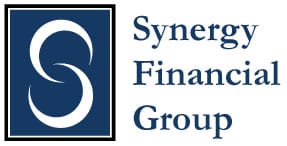One of the perks of our profession is we get insights into future legislation at the state and federal level that can affect our livelihood.
You see, the commercial real estate lobby is quite influential. Recall, the enormous push that occurred last year in California to defeat Proposition 15 which would have altered the way property taxes are calculated for commercial properties.
Presently, there is talk in Congress to gut tax deferred exchanges that are accomplished through section 1031 of the Internal Revenue code. Payback for the enormous infrastructure plan must come from somewhere and wealthy commercial real estate owners are a likely target.
As a quick review, tax deferred exchanges allow title holders of commercial real estate to defer capital gains taxes upon the sale of an income producing property. Certain criteria and time frames must be met. Otherwise, if a sale occurs approximately 50% of the appreciation is consumed by federal and state tax collectors. Therefore, motivation to sell would be stripped except in extreme cases.
A webinar hosted by David E. Franasiak, attorney at Williams and Jensen, PLLC and Julie Baird, president of First American Exchange Co., discussed the Biden Administration’s American Families Plan and the end of a special real estate tax break, “which allows real estate investors to defer taxation when they exchange property — for gains greater than $500,000.”
With a limit of $1 million for couples filing jointly, Section 1031 would effectively be killed, and if the proposal became law it could take effect for deals closed after December 2021.
I’d like to look at exchanges from a different view: Do they really matter to those without commercial real estate ownership? As I’m admittedly biased — I’ll simply offer three thoughts to consider.
Commercial real estate transactions employee a significant number of people. My premise? Elimination of transactions lured by tax deferral would also crater all the jobs associated with those deals.
I once calculated 32 different folks were involved in a purchase. Specifically, escrow agents, title officers, environmental surveyors, roof inspectors, general contractors, sub-general contractors — air conditioning, electricians, plumbers, flooring. Not to mention professionals such as CPAs, attorneys, and wealth advisors. Loop in a few brokers and the ensemble is complete. Dollars earned by those involved are circulated back through the economy and groceries are purchased, rent is paid and college funds established. And state and federal income taxes are paid from their earnings.
Small business owners who reside in commercial real estate through ownership use the tax deferred exchange mechanism to expand their operations. Keep in mind, business owners use the IRS section 1031 to purchase larger facilities and grow their businesses. Operational growth means equipment is purchased, workers are hired and taxable revenue is created.
Elimination of the tax deferred exchange mechanism would reportedly generate $19.5 billion over 10 years on a $2.4 trillion stimulus package. Unfortunately, the increment is so small, it’s akin to a rounding error. Too often, we lose sight of the unintended consequences of actions we take.
As an example, when access to home loans was expanded two decades ago, the sub-prime meltdown resulted. Granted, there was more to that story. But you get the idea.
By Allen C. Buchanan, For OCR

We are ready to help you find the best possible mortgage solution for your situation. Contact Sheila Siegel at Synergy Financial Group today.







